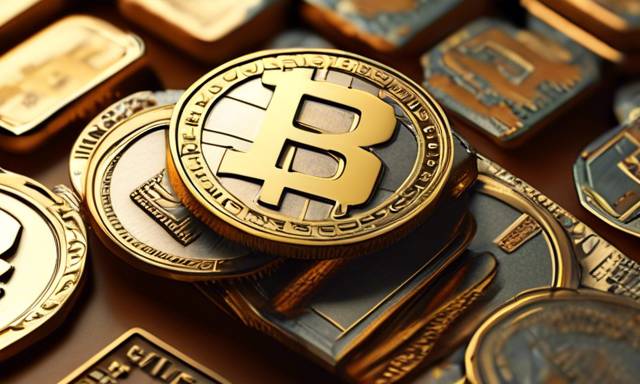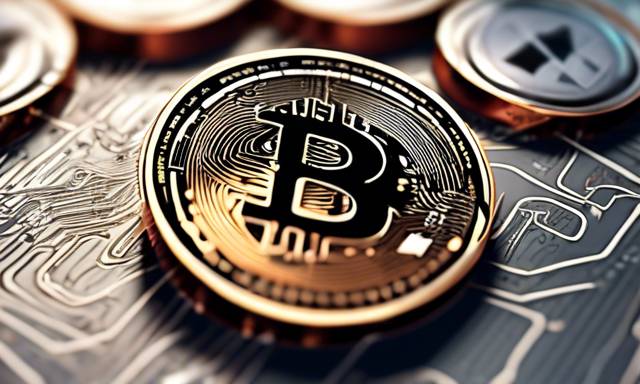NFTs and Consumer Goods: A Call for Legislative Clarity 📜
The Digital Chamber has formally urged lawmakers to implement legislation that characterizes specific non-fungible tokens (NFTs) as consumer products. By doing so, these tokens would be exempt from federal securities laws. This year, the organization has emphasized the need for a clear distinction in legal definitions, arguing that NFTs meant for consumer use differ significantly from financial products.
The association expresses that the categorization of NFTs as consumer goods would protect them from regulatory scrutiny, particularly from the Securities and Exchange Commission (SEC). The increased oversight from the SEC has raised concerns within the NFT community, prompting this urgent appeal for legal clarity that could safeguard both creators and consumers.
Legislative Action Needed: Protecting Innovation and Consumer Rights 🔒
In light of ongoing developments, the Digital Chamber believes it is imperative for Congress to respond positively and quickly. They argue that the SEC’s actions threaten the livelihood of both NFT creators and the communities surrounding them. These tokens are viewed primarily as consumer-oriented items, not securities.
- The Digital Chamber emphasizes these key points:
- Most NFTs are intended for consumer enjoyment and should be treated as such.
- The association is advocating for legislative measures that would clarify this classification.
- They criticize the SEC’s enforcement-driven strategies, arguing that such approaches jeopardize the work and income of NFT supporters.
For many, engaging with NFTs transcends simple ownership; it fosters community engagement and offers avenues for making a living through digital asset trading. This year, the need for a balanced regulatory environment has never been more pronounced, according to the Digital Chamber.
Legal Ambiguity: The SEC’s Scrutiny on the NFT Market ⚖️
Recently, legal uncertainties in the NFT marketplace have become evident as the SEC shifts its focus toward platforms like OpenSea and DraftKings, examining whether certain NFTs may be classified as securities under U.S. financial regulations. Traditionally, the SEC has primarily scrutinized cryptocurrency exchanges such as Coinbase and Uniswap; however, its current interest in NFTs signifies a new frontier in regulatory oversight.
For instance, DraftKings decided to halt its NFT operations following a class action lawsuit, which asserted that the NFTs offered by the platform could be deemed unregistered securities. The federal judge overseeing the case saw merit in this claim, further complicating matters for NFT platforms and their operators.
Dapper Labs, the creator behind the popular NBA Top Shot, is also facing ongoing legal challenges related to their NFT offerings. This year, these cases underscore the turbulent legal landscape impacting the NFT sector.
The Digital Chamber’s assertion that NFTs should pivot toward the classification of consumer goods rather than financial instruments resonates with many stakeholders who are actively engaged in this vibrant digital marketplace.
Hot Take: Navigating the Future of NFTs 🌟
As discussion surrounding the regulatory environment of NFTs intensifies, it becomes increasingly clear that stakeholders in the digital economy are seeking clarity and fairness. The Digital Chamber’s focus on distinguishing between consumer goods and securities reflects a growing desire for a framework that promotes innovation while ensuring adequate consumer protection.
With various platforms experiencing uncertainty and challenges in legal proceedings, achieving this distinction may help stabilize the NFT market, allowing it to thrive while still operating within a responsible and clear legal framework. This year has seen considerable activity in the realm of NFTs, and the ongoing debates regarding regulation will likely shape its future substantially.
The call for legislative action demonstrates how crucial it is for policymakers to recognize the differences between various digital assets. Moving forward, fostering an environment where NFTs can exist as consumer products will not only benefit creators but also elevate the overall experience for consumers navigating this evolving landscape.





 By
By
 By
By
 By
By


 By
By